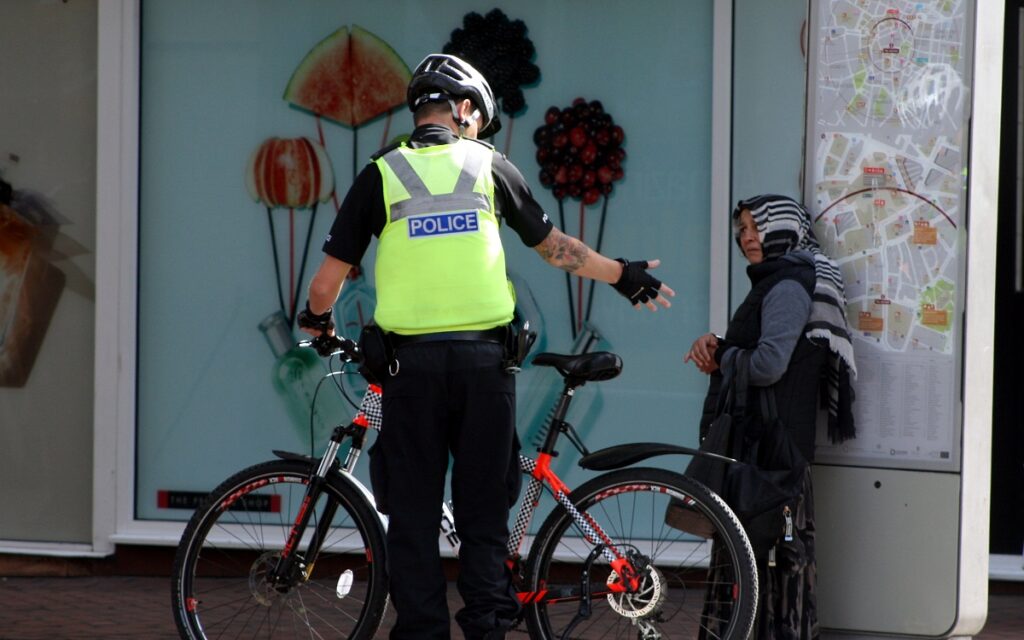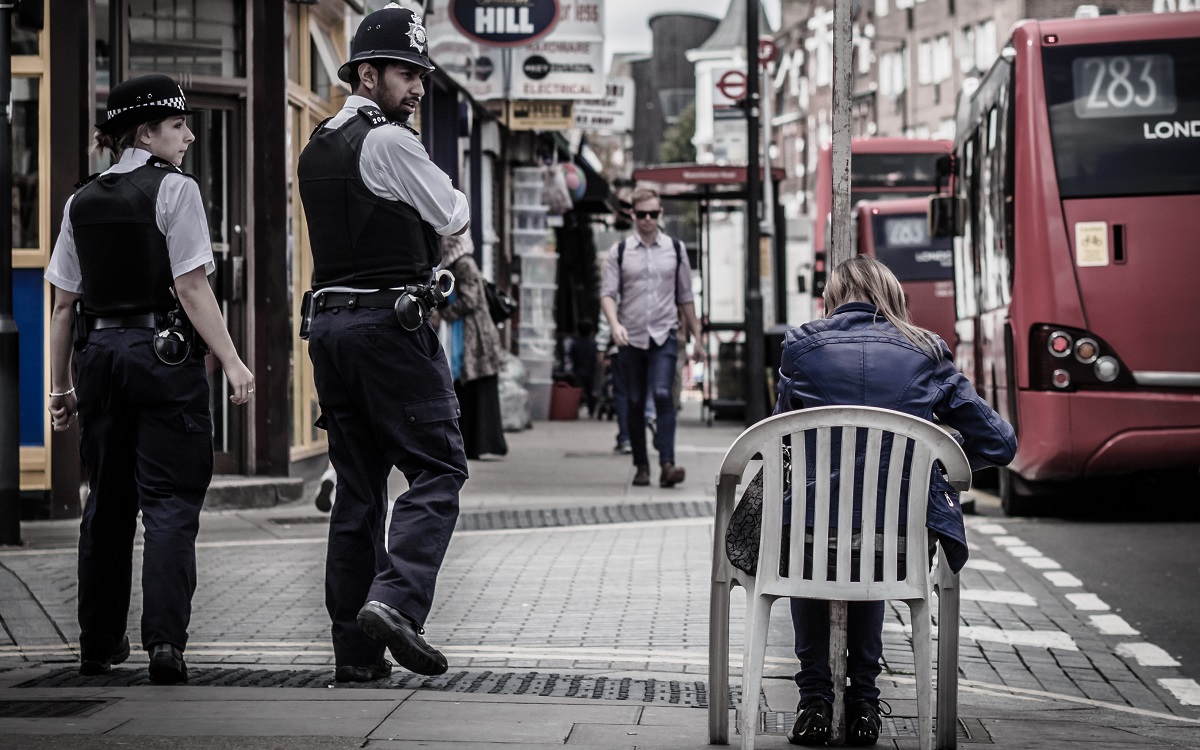By Professor Martin Webber and Professor Liz Hughes, published: 10/10/2023.
The theme of World Mental Health Day (10 October 2023) is that ‘mental health is a universal human right’. Everyone has the right to have good mental health, though with one in four people in the UK experiencing a mental health problem each year, significant resources are required for the care, support and treatment that is needed.
Routine policing
Police officers are spending a higher proportion of their time with people with a wide range of mental health issues, responding to mental health crises or supporting over-stretched mental health services. This includes undertaking tasks as diverse as searching for missing people who have dementia; managing people who are disturbed in a public place; or undertaking welfare checks and concerns for safety, for example. It is difficult to get accurate data on the amount of police time that is involved due to recording difficulties. However, we do know that police officers generally feel that they are not best placed to meet the needs of people with mental health problems.
As part of the ESRC Vulnerability and Policing Futures Research Centre, we are undertaking a two-year project focusing on how police officers respond to mental health problems in routine, ‘everyday’, policing. Much of policing and mental health research has focused on mental health crises and police response (including collaborative initiatives with mental health services and other agencies – known as “street triage” or “co-response”), though most contact with people with mental health problems occurs in everyday situations.
Right Care Right Person
The way that police respond to mental health calls in England is changing due to the roll-out of a new policy initiative “Right Care, Right Person”. This broadly aims to ensure that people with mental health issues access the appropriate help and care, and in many instances this may mean that the police control room will divert the call to another service rather than send a police response. Police forces across England are working with relevant partner agencies to ensure that there are appropriate care pathways in place to support this new way of policing. Whilst this policy will reduce some of the police involvement with mental health related calls, the police will still be required to respond to calls that fall into their remit (such as where there is risk to life and limb).
This policy will apply to police requests that are known to be related to mental health, however, we also know that police will be involved in calls/situations where it is not known that the person has a mental health issue. This may be because it’s not disclosed, or not recognised by the police. People with mental health issues will have contact with the police not just as a direct result of their mental illness, but due to wider vulnerabilities such as being homeless, poverty, being exploited (cuckooed), being a victim of domestic violence or interpersonal violence and assault, or being a perpetrator (e.g. petty crime such as shoplifting), for example.

New research
In our research, we are interested in how police (police officers and community support officers) understand and interpret mental health problems when they are encountered in routine work.
We are undertaking a scoping review of the literature first, then we will undertake a two-part research study:
- An ethnographic study that will involve observing routine police work across response cars, community policing and in the control room.
- Interviews with police officers, police staff, people with lived experience of mental health issues and contact with police, and local partner agencies.
We want to better understand what knowledge, skills and experience the police draw upon to inform their response, what interpersonal skills they use, and how their response may vary when working with, or informed by, a mental health professional.
In addition to obtaining the police perspective, we will also explore this from the perspective of people experiencing mental health issues. We are interested in how they experience the police response, and how this varies according to the context or reason for the encounter.
Finally, we will explore the police response to people with mental health problems from the perspective of partner agencies, such as NHS Mental Health Trusts, Local Authority Adult Social Care Departments or community or voluntary sector agencies.We will be interested in how they experience the police response to people with mental health problems; what their experience of collaboration with police officers is like; and what their perspective is of the way in which police officers engage with people with mental health problems.
Project aim
The aim of the project is to improve how police recognise and record contact with people with mental illness, to identify areas of positive practice that can be shared more broadly, and inform the future direction of positive policing for people with vulnerabilities associated with having a mental health problem.
We are a team of practitioner-academics (the co-leads Professor Martin Webber is a mental health social worker and Professor Liz Hughes is a mental health nurse) and senior research fellows in policing research (Dr Öznur Yardımcı and Dr Tobias Kammersgaard). In addition we have a multidisciplinary advisory group which comprises Home Office and Department of Health and Social Care representatives; police; policing and mental health academics; and people with lived experience.
Images
- Top: Image from Per Gosche via Flickr, cropped from original (CC BY 2.0 DEED)
- Above: Image from Swampy167 via Shutterstock

